L'Itinéraire: the Baroque jewel of the Dordogne
Another success in the Périgord!
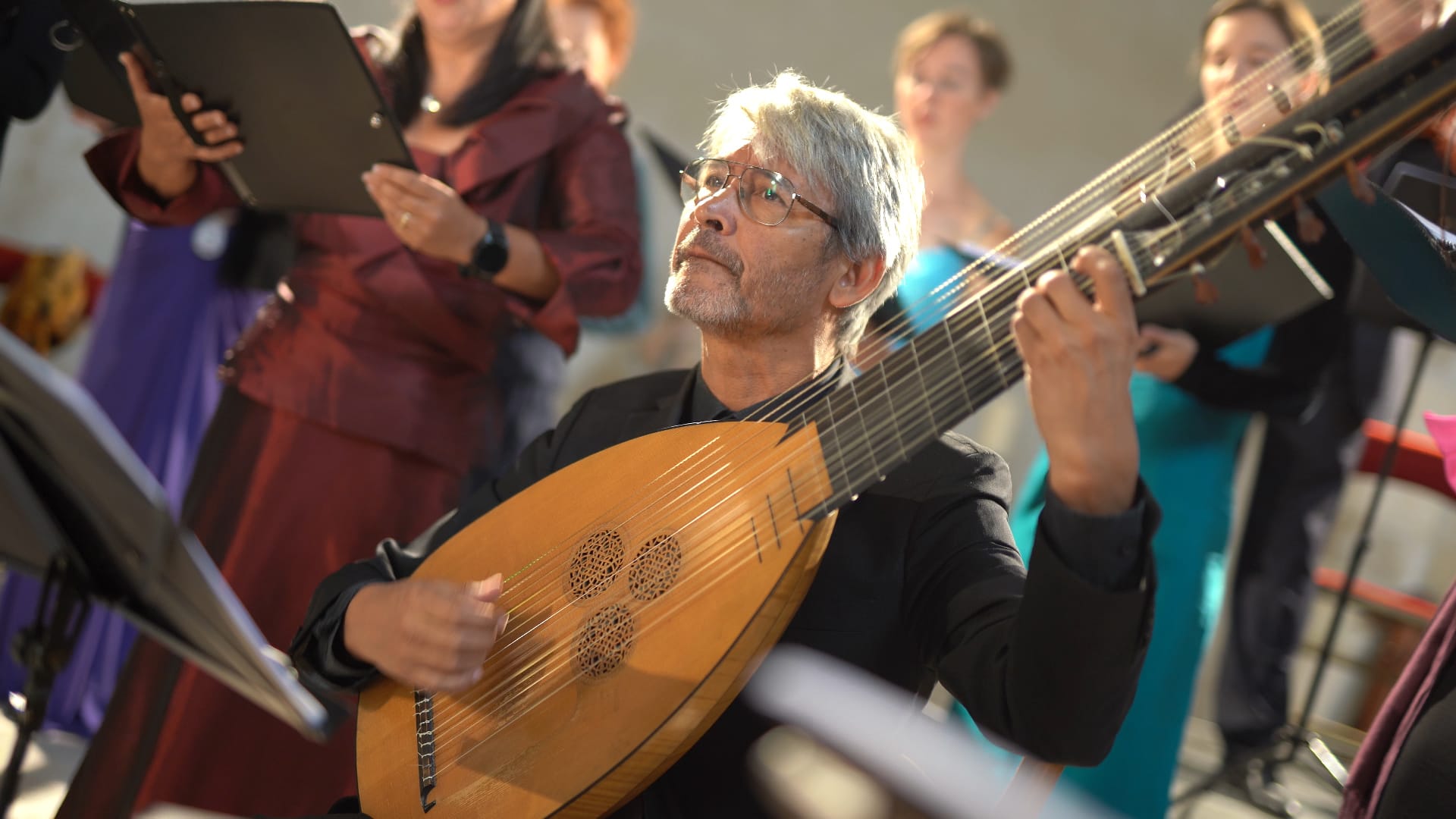
Itinéraire Baroque en Périgord, 2024: L’Iinéraire. Various Locations, 3.8.2024
La Gracieuse Robert Smith (viola da gamba); Mike Fentross (theorbo). Église Saint-Laurent de Mareuil, 0930.
Marais Suite in A (Book 2). Suite in G minor (Book 3). Suite in E minor (Book 4)
What a way to begin the 2024 Itinéraire!
Robert Smith is the most impressive of gambists, joined here by the excellent theorbo player Mike Fentross. Smith’s playing is of a purity rarely heard on any instrument; his gamba positively sings, something certainly to the fore in the Prélude to Marais' Suite in A (from the second book of pieces; (from the second book of pieces; all Suites are from Marais’ Pièces de viole des Cenq Livres)). It is nice to hear just with theorbo; Smith’s recording for Resonus Classics includes harpsichord, and an extra gamba for the bassline. The acoustic of Mareuil’s Église Saint-Laurent was perfect; a large space (this is the communal concert before the audience is split up) suddenly made intimate. Something very clear in the opening Prélude of the A-Minor Suite. The “Boutarde’ that follows, full of stopping despatched with preternatural ease by Smith, was nicely robust (more so than on the recording); it is cruelly short. ‘La Graceuse” (the title of Smith’s Resonus disc) follows, full of magical pianissimi before a delightful final dance.
Here's his recording of ‘La Gracieuse’:
The G-Minor Suite (from the Third Book) entertains maximal contrasts: the fantasy of the opening ‘Prélude’ against the well-behaved ‘Carprice’ that follows. Again it was the slow sections that impressed so deeply, here a ‘Plainte’ of supreme longing. The bells of the church ringing the hour were part of the journey here (which only added to the charm); as were Smith’s gorgeous rolled chords at the opening of the ‘added’ movement (‘La Georgienne dite La Maupertay,’ from the G-Minor Suite of the Fifth Book).
Here's the astonishing ‘:a Georgienne”:
Finally, four movements from the Suite in E-Minor from the Fourth Book, appropriately the most outgoing of the three Suites we heard. The ‘Prélude’ is is almost a fantasia n itself; it is indeed followed by a ‘Fantaisie’. But at its heart is a ‘Sarabande à l'epagnol,’ supremely expressive, with Fentross superbly sensitive to the ongoing flow. And finally, a surprise: the Suite’s eleventh (!) movement, ‘La Biscayenne’ with special guest star soloist on Koopman on drum. A delightful close.
Here indeed is ‘La Biscayenne’ (it is actually subtitled, (‘Tambourin’) from Smith's disc:
... back in 2019, incidentally, Itinéraire Baroque presented Moi, Marais!, an acted spectacle including Marais' viola da gamba works performed by Alberto Rasi, with actor/comedian Lorenzo Bassotto (review here).
And so the Itinéraire began - our little group began with ...
Musick for a While Musica Gloria. Église Saint-Martin de Champeaux, 1100.
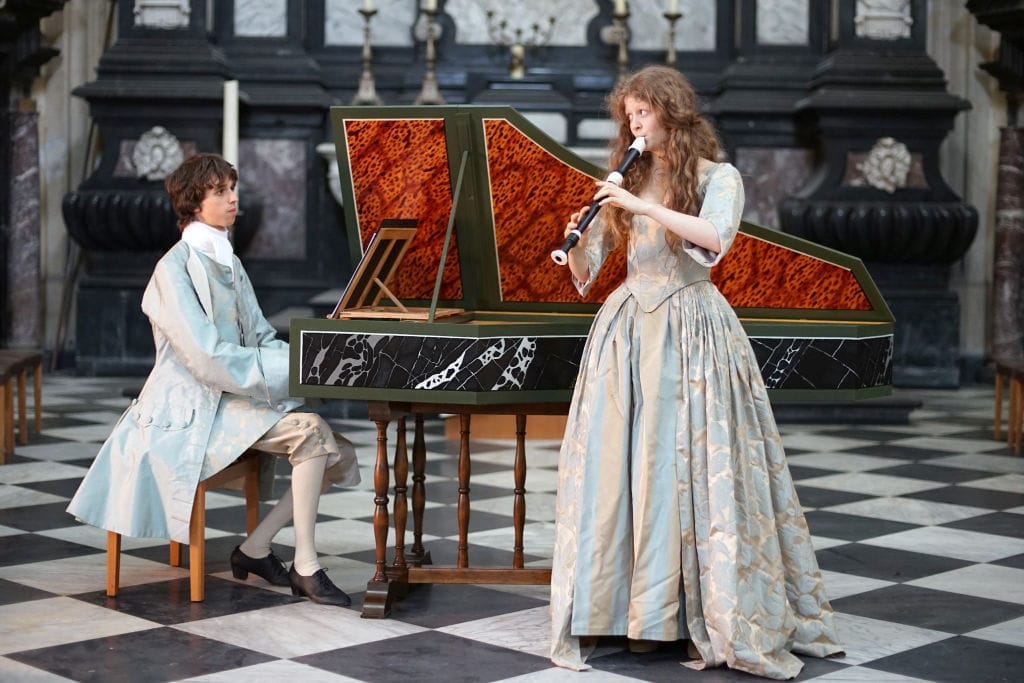
H. Purcell Musick for a While (Oedipus, Z 583); Hornpipe (The Old Bachelor, Z 607); Entry Dance & Rondeau, Second act tune (The Fairy Queen, Z 629); When Orpheus (Celestial Music did the Gods Inspire, Z 322; Harpsichord Suite in D: Almand, Corent & Hornpipe. His Solitude (Comes Amoris); Strike the viol, touch the lute (Come, ye sons of art)
D. Purcell The Unhappy Penitent: Slow Air.
Wordsworth I Wondered Lonely as a Cloud
Musica Gloria comprises Pieter De Praetore (counter-tenor), Nele Vertommen (oboe/recorder), Anne-Linde Visser (cello/viola da gamba) and Beniamino Paganini (harpsichord/recorder). As you can see, they are a talented, multi-instrumentalist lot: this concert was an affirmation of the joy youth can bring to music making. Their discs have already announced Musica Gloria as an imaginative group (Corelli and Handel: Musical Encounters in Rome and Fasch's Oboe are the ones I am familiar with).
Beginning with ‘Musick for a While’ is brave – one of Purcell’s most famous pieces, if not his most famous. Ther ewas an element of theatre about thsi performance, the musicians making themselves known to us one by one. Pieter De Praetare has a lovely voice, his control at the separated statements of the word ‘all’ was excellent, as was his ornamented version of the opening section on its repeat.
The music was perfectly chosen: a sprightly Hornpipe from The Old Bachelor, and two excerpts the pièce du semaine, The Fairy Queen: The Prom performance on Tuesday (August 6) from Les Arts Florissants, a Purcell/hip-hop mélange, was unforgettable, and of course there was the performance at Thaxted by the Armonico Consort and Players this year (review). All of this renewal of interest in non-Dido works is to be welcomed (whilst not forgetting the genius of that seminal work). The two excerpts here, a noble ‘Enry Dance’ and gracious ‘Rondeau,’ with some wonderfully controlled oboe playing from Nele Vertommen.
The song ‘When Orpheus’ (from Celestial Music did the Gods Inspire, Z 322) again had an element of theatre, which only served to underline the hetabreaking nature of the song. Here's Lucille Richardot on Harmonia Mundi with the Ensemble Correspondances under Sébastien Daucé (performers familiar from Versailles):
A procession of instrumental pieces (form a Haprsichord Suite and more Fairy Queen) led to the one piece by Henry’s brother, Daniel Purcell (c 1664-1717). a lovely piece featuring Vernommen. The Wordsworth poem was recited in French before the laden ‘Oh, Solitude,’ De Praetere at his most touching (this is one of Purcell’s finest songs, with echoes of Dido’s sigs of ‘Ah, Belinda’ from the opera Dido and Aeneas). Another Fairy Queen “entr’acte” before the absolutely infectious ‘Strike the viol’ from Come ye sons of art, a birthday ode for Queen Mary.
Here's an improvisatio/riff on ‘Strike the viol,’ for an Alpha disc performed by the ensemble Arpeggiata:
Without doubt, Musica Gloria deserves very success. They envigorate this music beyond compare.
Dios y Hombre Cantoría (Jorge Losana, director/tenor). Église de Saint Front sur Nizonne, 1200.
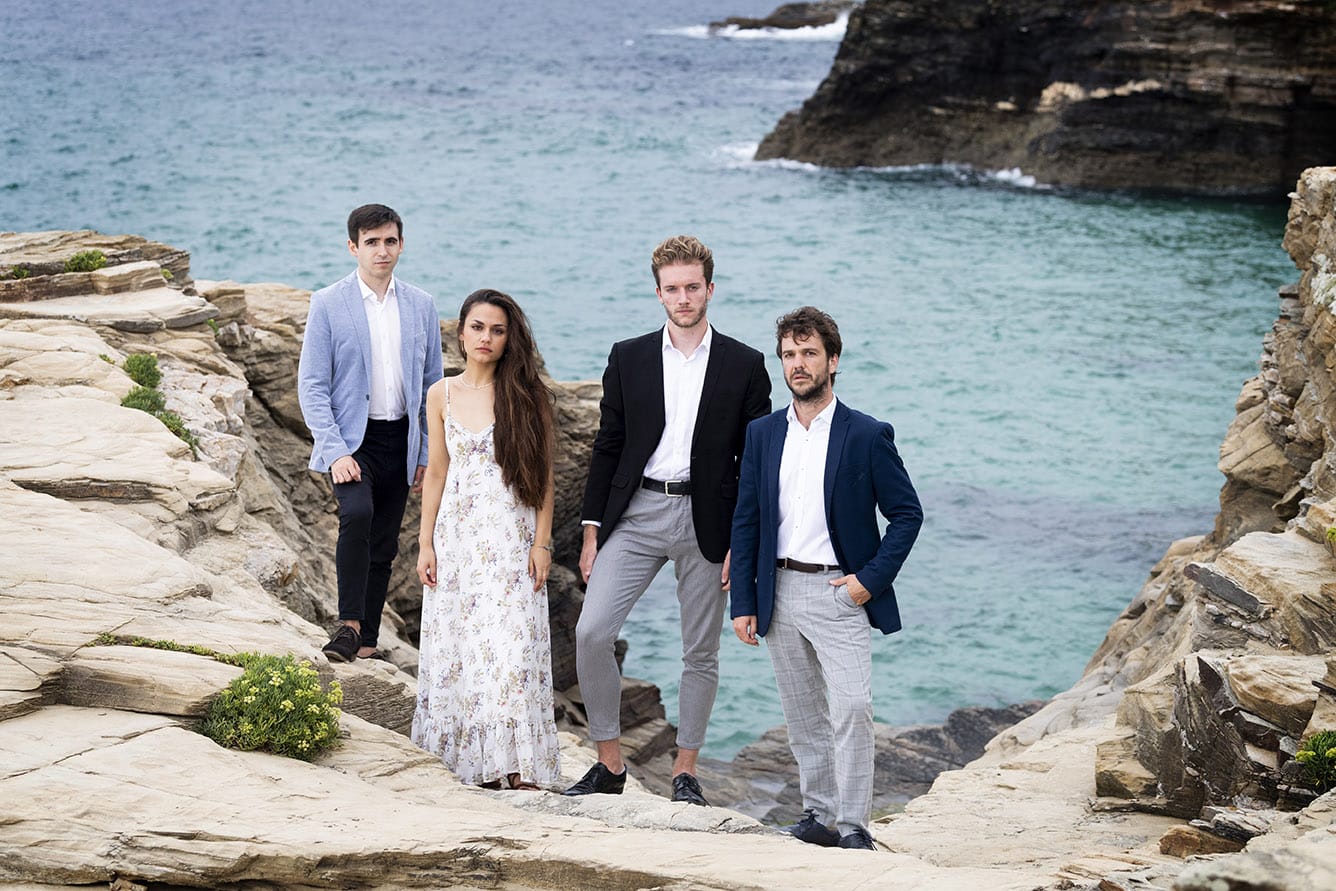
Flecha Cancinero de Barcelone (excerpts). Fantasia qu contraze e harpa di Ludovico. Las Ensaladas de Flecha.
Guerrero El toro. La bomba.
Mudarra Prado verde y florido. O Virgen cuando os miro. Si tis penas no pruebo. Huyd, huye o ciegos amadores.
This concert was subtitled ‘Polyphonic Vocal music of the Spanish Renaissance’. The Spanish vocal ensemble Cantoría has already issued one disc of music by Flecha, entitled Ensaladas, on Editions Ambronay: there it was four voices only (Inés Alonso soprano, Oriol Guimerà alto, Jorge Losana tenor & artistic director and Valentín Miralles bass); here there was a change of bass (to Víctor Cruz) and the group was augmented by Pablo FitzGerald on vihuela.
Mateo Flecha (‘El Viejo,’ c. 1481-1553) was a Catalan composer; Francesco Guerrero (1528-1599) Andalusian. The more spiritual songs of Guerrero contrast with the concentrated expression of Flecha. The first piece, ‘Los reyes siguen la estrella,’ set the stall for Flecha’s music ini its very unpredictability, coupled with a real dramatic flair; the lullaby that followed showed a very different side. Throughout, though, there was the purity of approach and attack from Cantoría, blissfully low, often free of, vibrato. Rhythms dance with this group, and the way they sing implies what we hear is the result f a long journey from manuscript to vibrant life.
For all of the excellence of Flecha and Guerrero, it was the viheula music of Alonso Mudarra (1510-1580) that impressed the most, perhaps most in the almost chorale-like O Virgen . A composer to explore, for sure.
Cantoría are superb ambassadors of this repertoire; this was a concert to relish. Wit met profundity; the result touched the soul.
La Naissance de l’Air baroque Johanette Zomer (soprano); Mike Fenross (theorbo). Église Saint-Martin de Saint-Félix de Bourdelles, 1515.
Monteverdi Laudate Domnum.
Frescobaldi Se l’aura spira.
Kapsberger Toccata. Già risi del mio mai.
Constantijn Huygens Le réveil de Calliste (Aubade)
Caccini Amarilli mia bella.
Nicholas Lanier No more shall meads de deck’d with flowers
From Frische Lust-Hof (1621 book of popular Natherlandish songs): Goddine, wiens minne
Purcell Music for a while
Statistically, not every concert in a day such as this will be of equvalent excellence. The experienced soprano is clearly something of a linguist (she sang fluently and convincingly in Ialian, French, English and Dutch), but her voice is a little tired, and she was upstaged somewhat by the enthusiasm of her threobist. Mike Fentross (who we met what seemed by this stage a long time ago, but was actually only at 0930 that morning). Zomer’s recordings are finer than what we heard here ; the Monteverdi lacked just the las ounce of rhythmic flamboyance; at the other end of the recital, Purcell’s ‘Music for a While’ paled in comparison to the Musica Gloria performance.
What were lovely was the poignant Dutch song Goddine, wiens minne, and Huygens’ Le reveil de Calliste, and Lanier’s No more shall meads be deck’d with flowers was completely convincing in is beauty (and who doesn’t like the idea of a rosy bower?).
It was though wonderful to hear a Toccata by Kapsberger on theorbo, complemented by a rare outing for one of his songs. Sadly, not the finest concert of the day.
Entre l’Ange et la Bête Catalina Vicens (organetto, posiive organ). Église Saint-Jean Baptiste de Puyrénier, 1630
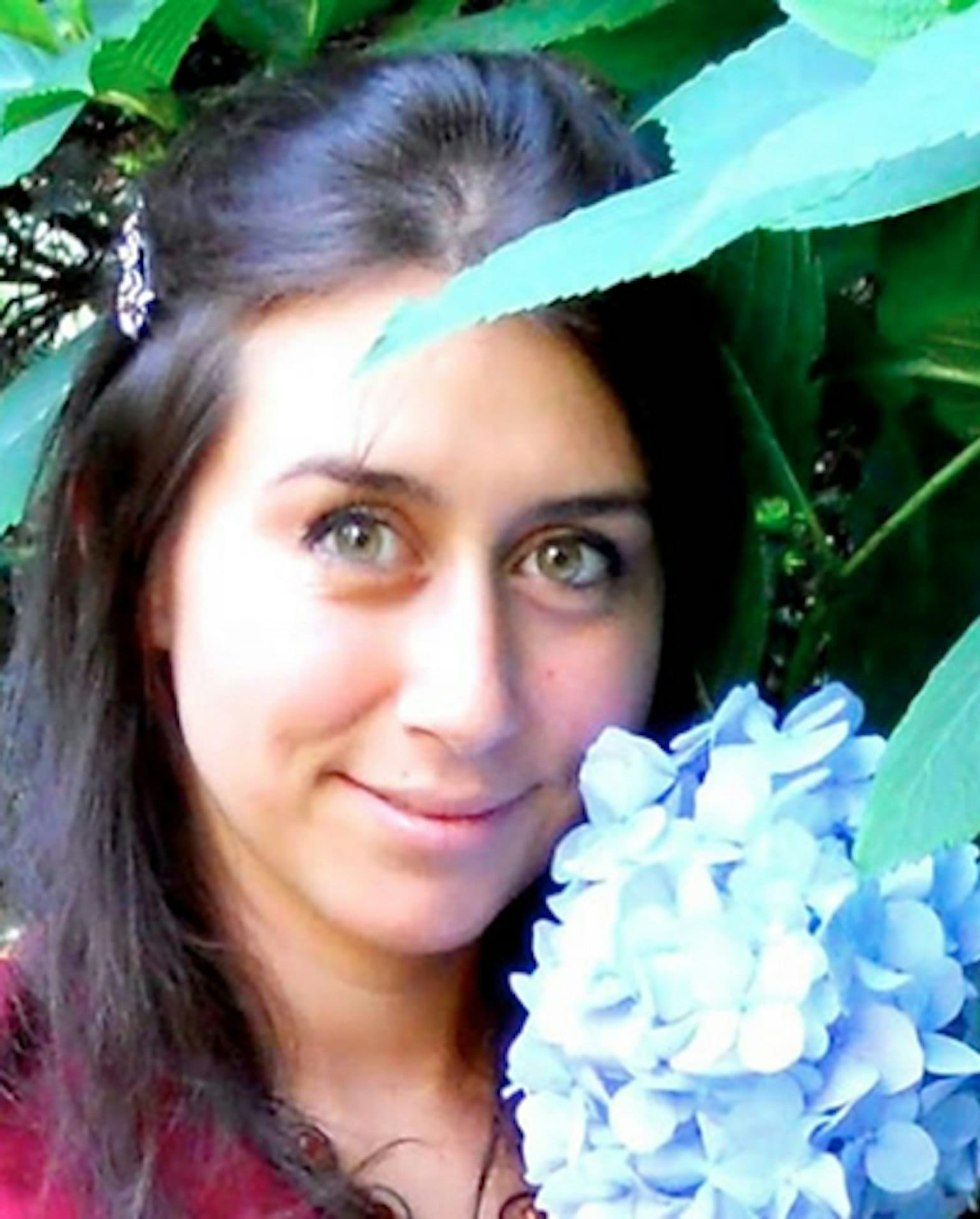
While there was a listed programme for this lecture-recital, the musicologist and performer Catalina Vicens instead presented a clutch of pieces introducing her instrument, the organetto (it looks a biit liek an accordion) and the positive organ. The event title refers to drawings found in the marginalia of books of the time.
If you want to get an idea of the extraordinary sounds of this concert, try Vicens’ remarkable disc An Old Hall Ladymass on the 2L label, where she is joined by Trio Mediæval. The music is strange, haunting, modern yet timeless. Perhaps most extraordinary was her performance of Machaut: Dame votre doulz Vlaire, an expressive melody against a drone (interestingly, vibrato was used to increase emotion).
In addition, we heard some music for the positive organ from the Florentine court, plus an improvisation on Hildegard’s music. The whole event was spell-binding. Vicens is a captivating narrator (it was mainly in Fench, woh portions translated by Vicens into English).
Music at the Court of Ommeyades Les Aromates. Château de Connezac, 1800
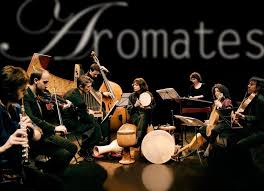
The final (now communal) concert took place not in a church but at a château (and a very nice one, at tat); it was also outside. And this was very outdoorsy music: the group Les Aromates comprises percussion (Michèle Claude), flutes (Isabelle Duval), violin (Baptiste Frugier), viola (Lou Deschamps), double-bass (Julien Blanchard) and lute/vihuela (Johnathan Lemarquand). We were transported via music to the courts of the Caliphs of Spain. Perhaps appropriately, it was baking hot in the sun.
The music encompassed gypsy flamenco, and music from North Africa and the Middle East, including Sephardic sounds. The sound is remarkable, the rhythms infectious. If you want to hear what the group sounds lik, try their Alpha disc Rayon de Lune, altough bear in mind that is a studio-cleansed version of what we heard in France. Live, there is vibrant electricity everywhee – I am genuinely surprised no-one got up to dance. To hear Les Aromates is a thrilling experience. Each member is a virtuoso, and each member (pardon the pun) got his or her moment in the sun. They do extroversion and they do tenderness with equal ease. For my tastes, and purely for my tastes, there was rather too uch of a good thing, but I suspect I could be in the minority there.
Robert Smith's Marais disc La Gracieuse is available from Amazon here; Musica Gloria's disc Fasch's Oboe is here, and their Corelli/Handel disc Encounters in Rome is here.
Cantoria's excellent Ensaladas disc is here; Catalinna Vicens' Old Hall Ladymass is here. and Les Aromates' Alpha disc Rayon de Lune is available at a absolute steal from Amazon at £5.95 here.






